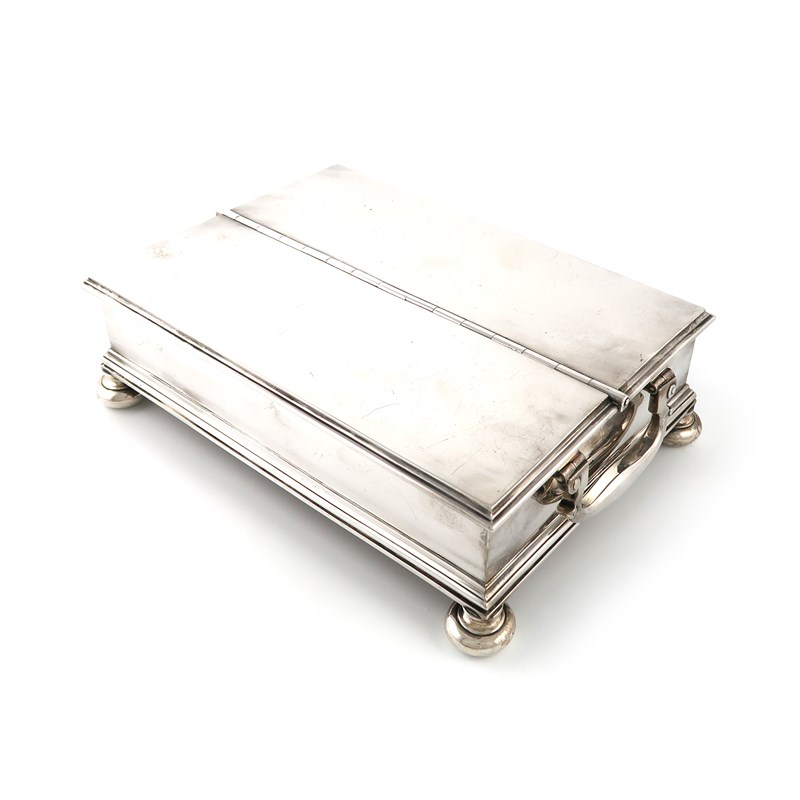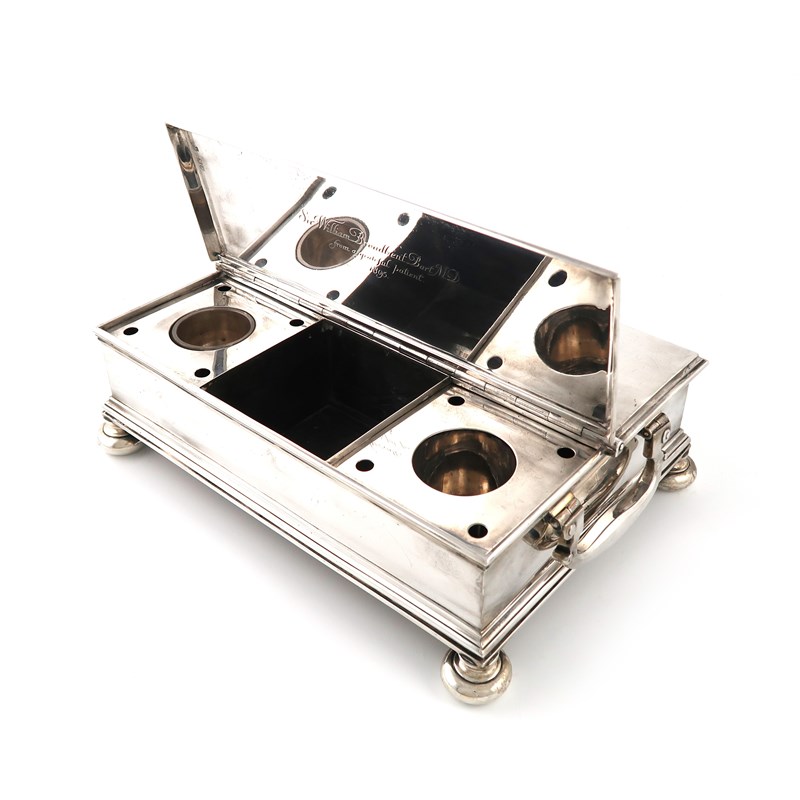Silver & Objects of Vertu - Day 2 - 25 Jan 2023
A Victorian silver treasury inkstand owned by Sir William Broadbent
A Victorian silver treasury inkstand owned by Sir William Broadbent, physician-extraordinary to Queen Victoria,
by James Garrard, London 1895, also stamped R & S Garrard, London,
conventional rectangular form, with two hinged covers, one inscribed 'Sir William Broadbent, Baronet MD, from a grateful patient. 1895', one side with three compartments, two containing recessed inkwells (one glass liner missing), the other side with a single compartment, two drop-scroll handles, on four bun feet, length 31cm, weight of inkstand 102oz.
Sir William Henry Broadbent (1835-1907) was born at Lindley, near Huddersfield, in 1835, the son of a manufacturer. He was originally intended for the woollen trade, but decided instead to pursue a medical career. He was apprenticed to a surgeon in Manchester, and attended Owens College and Manchester Royal School of Medicine. Broadbent was a successful student, winning gold medals in anatomy, physiology and chemistry at the first MB London exams in 1856.
Broadbent had a reputation as one of the best clinical teachers in London, having interests in the fields of both cancer and neurology. One of his contributions to neurological advancement was 'Broadbent's hypothesis', an attempt to account for the distribution of paralysis in muscles and the immunity of some muscles to hemiplegia. He also made important contributions to the study of aphasia, and was an expert on heart disease and typhoid fever. At the Royal College of Physicians he was appointed censor in 1888-9, and senior censor in 1895.
Broadbent was a distinguished academic physician and also a well-known society doctor, whose patients included the Duke of York (the future George V) whose life he had saved from typhoid, the Duke of Clarence and various other members of the royal family. In 1892 he was appointed physician in ordinary to the Prince of Wales (Edward VII) and in 1896 physician extraordinary to Queen Victoria. He was made a Baronet in 1893, and was elected fellow of the Royal Society in 1897.





 Live online bidding is available via our own
Live online bidding is available via our own